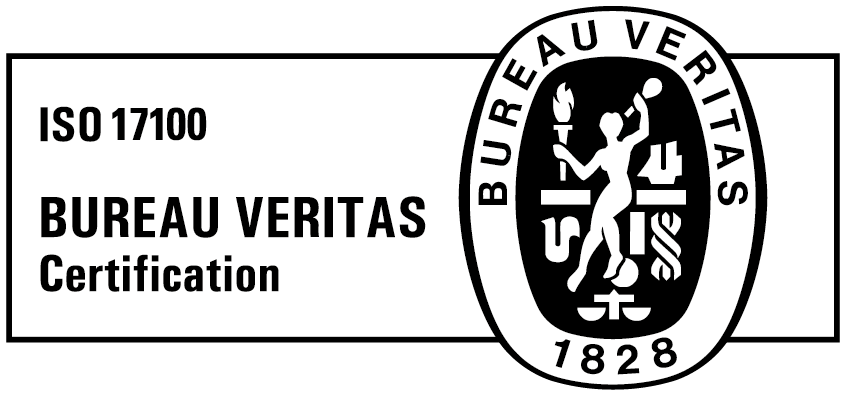Podcast
AI, Translations and Company Culture
Primož discusses with Matija and Kaja about how AI is changing the translation industry, why it matters and how it will shape the future.
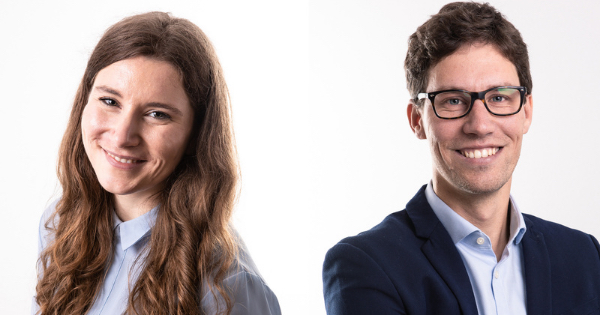
“We realized that there’s a lack of a single platform that would connect both the clients and translation service providers, as well as the translators into a seamless platform that would be as automated as possible. ”
Matija Kovač, Co-founder @Taia
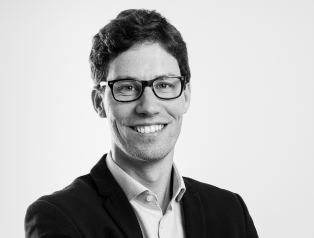
Matija Kovač
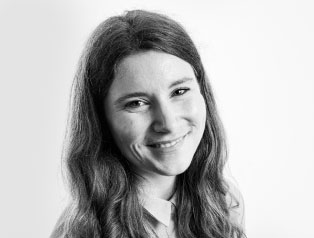
Kaja Šepec
HR Manager @Taia
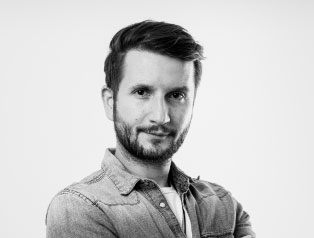
Primož Zanoškar
Head of Creative @Taia
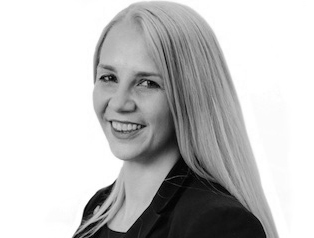
Maja Voje
Founder @Growth LAB
What you'll learn
- What effect company culture has on the company’s success..
- Why a great idea isn’t enough without a great team.
- How Matija became the leader he is today, by learning from his mistakes.
- How AI is changing the translation industry.
- Why localization is an important part of a company’s international success.
Transcript
Maja Voje: Dear listeners. Welcome to another very special episode of this podcast. With us is one of the original founders of the podcast, Primož Zanoškar. For the last six months or so, he has been working as CMO and Creative Director of Taia, a company that is bringing automated translation to companies to nail at localizations and reaching more international consumers. Because the company is international, based in the UK, we will record this podcast in English and we have been blessed because there are two amazing guests with us.
The CEO and founder of the company, Matija Kovač, as well as the HR manager of the company, Kaja Šepec. Have a blast and enjoy the show! Love, love Maja.
Primož Zanoškar: Maja, thank you for your lovely introduction. Hello, podcast lovers and welcome to the new episode of Reneseansa, your Friday’s favourite waste of time. My name is Primož and I’ll be your host today. This episode is very special to me because I am hosting not one, but two amazing people who are my dear friends and colleagues. My first guest is Matija Kovač, a man of many talents, mad scientist, father, sea captain, language enthusiast, and the co-founder of Taia translation.
And my second guest is Kaja Šepec, the most positive and bubbly person that I know. A psychologist, and an HR extraordinaire on a mission to help Taia build a team of ultra-talented and culturally fitting professionals. Today, we’re going to talk about the past, the present, and the future. So grab a glass of wine, relax, and join us on this journey.
A warm welcome to both of you guys. It is a great pleasure to have you here. Would you be so kind and tell our listeners a little more about yourself? What do you do? What is your background? What is your drive? Why did you decide to work in the language service industry in the first place? So Kaja.
Kaja Šepec: Hi, I’m Kaja, I am an HR manager at Taia Translations, and in regards to background, I’m quite a start-up kid. So I have quite a vast array of experience in different start-ups, not just in Slovenia, also in Finland and in the Netherlands and my educational background on the other hand is psychology. Which actually doesn’t mean that I can read minds. It just means that I pay more attention to people. I listen to them intently and I try to realize what are their drives and how to help them grow and develop, which is also in a way my drive. Basically, why did I decide to work in language service industry?
I would say it was quite not a deliberate choice, but it kind of happened. But if we look at the coinciding with my name and the company, I guess this was kind of a selection criteria, I guess, because now when I call people, I introduced myself with: “This is Kaja from Taia calling” and that confuses people. And this is basically our main intention.
Primož Zanoškar: Sneaky strategies. Matija!
Matija Kovač: Hi, yeah, so my name is Matija, I’m the co-founder of Taia, as you already mentioned. I started working on this project about four years ago and it’s sort of a spin-off from our previous company. So together with my business partner, Marko, we started out with the previous company, which was also in the language industry.
And then somehow we got pulled into this one and, long story short, this is where we are now. As you mentioned, I am a man of multiple interests. I do a lot of interesting things with my life but in my free time, I’m a father to two lovely girls and I like to do podcasts as well.
Thank you, Matija, thank you for this answer. Let’s talk a little bit about the origins of Taia. What is Taia, why Taia, please share your secret recipe for success with us.
Okay, so as mentioned we started, I think it was in 2014 with my business partner Marko. We created the language school that quickly became one of the biggest in the region and was able to serve multiple large companies as well as individuals. And with this business model, we sort of started working with a bunch of companies who asked us if we can do their translation services as well. And we decided to give it a go, let’s try and soon learned that we don’t have any processes in place and that the technology is all over the place.
And then immediately after that, we realized that there’s a huge gap between what the technology has to offer and what the market is actually doing with this technology. And we realized that there’s a lack of a single platform that would connect both the clients and translation service providers, as well as the translators into a seamless platform that would be as automated as possible.
So this is where the vision of Taia sort of started coming out from the blurry fog of the future into a reality that we’re trying to build today, making a single platform where we can rule them all, I’d say.
Primož Zanoškar: Oh, a wicked plan. I’m really curious about your company culture, Kaja, you’re a gatekeeper to talent that is knocking on Taia’s door. What would you say makes Taia different in this respect?
Kaja Šepec: So I guess what stood out to me, like even in my first talks with Marko and Matija is that there’s like definitely a huge emphasis on people and the culture.
And I guess me being hired so early is kind of like a testament to that already because usually a start-up would go hire a recruiter when they’re around 30 people. And then maybe an HR admin at 60 and only at 90 around 100, they will start thinking about more strategic HR role while basically I joined when we were 18 and this already puts into perspective how much emphasis are kind of the founders willing to put in this aspect.
And I think this is also very important for a start-up itself, because, yes, maybe on the first impression for a start-up it’s, yeah, when you think about HR, it can be something very corporate and very stiff, and it doesn’t go well with the start-up fast-moving agile environment. But in fact, this is the main reason why it’s important to invest in HR because when everything is so volatile and uncertain, it’s important that people have kind of a set of values and culture on which they can rely on and helps them kind of then power through those tough times, this uncertainty. So it’s important to foster good environments for people. And also like very early on, it’s important that people you bring in are a good fit to the culture because they’re the ones who are going to spread then outwards. So it’s important that the initial hires are kind of like made very deliberately in a structured way.
Primož Zanoškar: So, what are you doing to support it?
Kaja Šepec:I would say that we are still kind of like at the beginning, so we have a clear road ahead. But we are at the beginning because yeah, I joined recently, but kind of let’s say what my roadmap is. We are currently now working on defining all cultural, defining our values.
Why is this important? Because we want to help people understand who we are as a company, what’s important to us, and we’re trying and wanting to give them a reason to work. Why is it important? What is the impact they’re trying to make? So first it’s important that we define this. Then secondly, it’s important that we communicate this in a clear way, because if I kind of define that one of our values, for example, is inclusion. This might mean something to me, while it means another completely different thing to you. For example, if I write six on the ground and you stand in front of it, it looks like a nine to you. So it’s important that we set clear, specific behaviours and criteria to see what people are doing. And then the second step which will happen in future is kind of trying to infuse all those cultures and values into our processes.
This is already happening for our recruitment, but we need to put in place different processes, things which will support that. So based on our values, based on the things which we identify as important to us, we will then, for example validate people, hire people and help them develop. So this is kind of a grand plan.
Primož Zanoškar: Thank you, Kaja, for this detailed answer. Matija, it is well known that you’re not the typical leader. What makes you stand out from the crowd? What is the secret of successful leadership?
Matija Kovač: Oh, that’s a good question. I don’t think I’ve discovered that yet. I’ll let you know in the comments below when I figure out what the secret to successful leadership is.
I tend to have maybe a bit of more of a modern style of leadership. I’m not a typical corporate bastard with a tie. I tried to keep a very relaxed atmosphere with most of my colleagues. I like to listen in to people and see what they have to say. I try to see their point of view in many occasions, so I can see how what we’re building looks like from the point of view of someone inside the company and from someone who is trying to join this company as well.And I tend to think of myself more of a person whose role it is to remove the obstacles in everyone’s way and not to point them to any tasks specifically. So what I don’t like is this direct managing style where you have to micromanage and delegate tasks and take the autonomy away from everyone by doing so, but rather to stand backwards a bit and behave more as a mentor and person who tries to find the answers when everyone else can’t find them. Or maybe shed some light on some problems and try to navigate through the rough seas of everyday business decisions. I think that’s basically the gist of everything. What I think is something that Kaja already mentioned just a second ago and it’s extremely important for us is the idea of taking very, very measured risks of who we take into our midst. We don’t take people in because they have good CVs or good experience or something. I think the fact that they have to be a very good cultural fit and they have to contribute something with their diversity and their personality. This is, I think, one of the most important aspects of our hiring process. So you can’t just become a Taia person just by showing up at the front door and bringing a blast of a CV with you. You have to have what it takes to be the right person inside. And we, we are quite aware, I hope we are, that even one poisonous person can bring down the entire team and demotivate everyone and collapse the entire system. So we’re extremely careful, at least we hope we are, when it comes to the hiring process of who we let into our Taia tribe, how we like to call it these days.
Primož Zanoškar: What would you say is the key quality that you’re looking in the new people that you’re going to hire?
Kaja Šepec: I would say definitely one of the things we are looking for is kind of desire to grow and learn, but also a person who is warm and inclusive and empathic in a way. So individuals who are willing to listen to each other, who are willing to support each other and help each other grow. And at the same time, people who are team players and are willing to kind of maybe step on the sidelines and help their team win.
Primož Zanoškar: And you Matija, what do you think?
Matija Kovač: Regarding what are the key qualities of people we’re trying to bring in? I think I summed it up very well. Definitely being empathic is very important to us, people need to be capable of listening to one another and accepting other people’s arguments and points of view.
What I think is also very important is the constant growth that also Kaja mentioned, this is in my opinion one of the biggest and most important personality traits or if you call them that way for every modern person, because the world around us is changing at a pace that is unprecedented. None of our ancestors have ever witnessed anything so fast in regards to technology, in regards to the way we see the human species in overall. And if you’re not capable of adapting and learning on a daily basis and expanding your point of view and expanding your knowledge, you’re just not capable of being a part of a modern culture, as we say.
Primož Zanoškar: Thank you. Matija, since you have been in the business for more than 10 years, have you noticed any big trends in mindset changes on a global level? And if you do, can you give us an example or two?
Matija Kovač: Sure, yeah, I don’t think I’ve been… Well yeah, maybe 10 years is the right number. Oh gosh, I’m old. But yeah, I’ve seen some, I’ve seen some changes. As I started out as a young man, I worked in a couple of different companies, I worked abroad as well. I lived even in China for a while. So I’ve seen a few different ways how people might behave and how people might work. And I must say that what we’re seeing lately in the business arena has impressed me a lot. Because, as I just mentioned in the previous answer, it’s not about what you do, it’s how you do it. And it’s how do you feel when you go to work. I think this has changed a lot because the previous generations maybe just went to work because of the work itself. They didn’t care so much about their wellbeing when they were working somewhere and not much emphasis was put on that. But our generation is, let’s say millennials and younger, if we want to put tags on everyone. We’re much more inclined to, well, we’d rather not work somewhere if we don’t feel good, even if the pay is better than somewhere else, for example. And I don’t think that many people in the previous generation were capable of this point of view because it’s much, it seems quite irrational, in some cases, well you’re paid less, why did you pick that job? But if you take the whole point of view, it’s much more logical that you take a job that makes you feel well, even if it maybe pays less, but in the long-term, you at least keep your sanity and your physical health in check. I think this was one of the biggest changes.
And then in regards to leadership, one of the very cool new trends that I really like is how the decision-making is changing. So how we’re progressing as a species into new ways of behaviour, where new decision-making is also part of this modulating behaviours. And the approach that I like here is what we like to call the autonomous approach, where people can make their own decisions, but they make them with the advice of their stakeholders. So it’s not that every decision has to be directed from top to bottom, but everyone in the organization is capable of making their own decisions, even if it comes to purchasing software or some high expenses or even hiring. But they usually need to at least take some time and consult with other stakeholders in the process.
So they’re sure that, okay, everyone is maybe not extremely consent with this; there’s you don’t search for consent of the entire group, but at least you get the point of view of everyone responsible in the business. I hope this made some sense.
Primož Zanoškar: It surely does. Let’s just quickly touch on the most overused keyword over the past year. Are you sure you want to go? A well-known COVID-19 aka Corona virus aka the business topper. How does it force the everyday life worldwide to change its direction and make people quickly adapt to the current situation? How is it impacting the business? Do you see it as a development blocker or as an opportunity?
Matija Kovač: So, yeah, in some cases it definitely made a tremendous change in the amount of business that’s going on and a lot of companies have started letting people go or even closing down and they’ve cut their expenses a lot. And it has affected both the language learning industry tremendously, but also the language translation industry, which is where Taia is. And it definitely showed some issues to us.
But on the other hand, it showed a bunch of opportunity. If you’re capable of seeing them. One of them, for example, a very obvious one is online shopping because previously, most people were not that interested in online shopping, but now even the older generations and everyone else was basically forced to start using e-commerce platforms to get their things.
And with this comes the opportunity for e-commerce platforms to expand abroad, specifically in Europe, where you have a bunch of smaller markets and a bunch of e-commerce platforms serving foreign markets across the borders. They then require localization and this is where we can step in with our solution because we can streamline this process, make it more efficient, make it faster, make it even cheaper. And help these companies reach more users in foreign markets. So this is one way. And yeah, it’s easier I guess, than it was previously to do this. So we’re basically kind of lucky that this pandemic hit us now and not 10 years ago where we now have the technology and the means to work as a society on a remote basis.
Primož Zanoškar: Yeah. Okay, Kaja, how about the new hiring process in these epidemic times. Is it harder or is it easier for you to find new people?
Kaja Šepec: Well, actually, I guess one thing which kind of was a big consequence of the COVID situation is definitely that now the talent pool is wider. On one hand, there has been a lot of layoffs and there’s a lot of very talented great people out there who are looking for new opportunities. And at the same time, everybody’s got used to working remotely. So any borders that existed between us before, like physical ones, they’re not a factor anymore. So when you’re searching for talent, it’s so much easier. And we actually decided to open up and like, if I look back at this week, I introduced or interviewed people, from Uzbekistan, from Argentina, from USA, from Brazil, and other, like also European countries, Barcelona, London. So it’s so many more opportunities and so much more great people we can bring on with these changes.
Primož Zanoškar:Taia is already helping many big and small companies tackle the translation challenges with the help of AI. Do you think AI is evil and will still all of our jobs in the future? Or do you see it as a huge technological advancement that could make our life much easier?
Matija Kovač: Well, it’s definitely not evil in its own way. I mean, it’s just technology, right? People in the early industrial revolution also thought that machines that took their jobs were evil and they were setting whole factories on fire. And this is something that’s been repeated all over through human history. So technology always brings some traction in how people adopt it. In some cases, they’re terrified of it. In some cases, it just ruins their lives basically. But it nevertheless changes the way we work as humans and it eventually, at least most technology except military technology, improves our lives in the long-term. So if you are working as, in our case that would be a translator who works manually without the assistance of any tools. Then you would be wasting a lot of your precious time in your life doing something that can be achieved with much less effort and not to say that the work of translators as they do it is not being cherished or important to us. But it’s the fact that yes, if you’re translating literature or if you’re translating something that requires a lot of human attention, then of course, there’s no way that AI can entirely replace what you do. But if you’re translating boring business documents all over the place, which is what we do most of the times, to be honest, then why would you waste your life away by translating the same contract over and over again every week? Or if you have a solution that can translate this content, this let’s say contract or whatever content you might have, in a much more efficient way. And you as a human, as a translator, only come in to make sure that the AI was not wrong or any other technology that might assist you in this case. Wouldn’t you grasp that opportunity? Wouldn’t you want to be more efficient at what you do and have more time to live a meaningful life and not do things manually? I mean, it’s the difference between chopping your onions by hand or throwing them in the food blender. You know, it’s kind of a similar thing.
Kaja Šepec: Also, I would say that in a way still the machines are not perfect and they’re not there yet. So what this AI actually does, it enables people to actually focus on more kind of cognitively demanding parts, which are actually a challenge and which are interesting in a way. So basically, you avoid translating the things which are repeating itself and which are not a challenge for you anymore and you can spend more time focusing on the aspects, which are harder, where you need to like really think, really put your creativity and knowledge into action and actually get to a great result.
Primož Zanoškar: Great. Now let’s talk about the AI in the translation industry. How does it help?
Matija Kovač: So machine translation has been in the localization industry for decades now. It started out first with translation memories in the eighties even and then definitely in the nineties, when most large organizations started using so-called CAT tools or computer-assisted tools.
And then through time we developed statistical machine translation technology, which you might remember from the early days of Google Translate. And it was quite quirky at times, a lot of mistakes and in some cases it might be much more harmful to the translator than useful, when we talk about statistical machine translation.
But of course there were times with a lot of repetitive content, a lot of content, again, that does not require so much human intervention, so much information to be brought across into another language that requires the human touch. In that case, statistical machine translation was a fairly useful tool in its own way.
But in the recent years, let’s say 2016 even, which is not so long ago is when first neural machine translation engines were finally coming out on the market, Google Translate of course was one of them. And by now this technology has drastically changed the quality of machine translation from this funny quirky little Google Translate of 10 years ago to what is now actually becoming a very, very good translation in both general and specific topics. And I’m not talking only about Google Translate here, there’s a plethora of different solutions out there. And we’re all developing something of our own, we’re all trying to solve some niche problems here to get the best machine translation that can help a very specific situation. And this is definitely changing the translation landscape tremendously. In one regard, it’s the fact that translators now can do a more meaningful job, just like Kaja mentioned right now, they can make sure that the translation is correct and they can intervene when it’s really important that they intervene, but they don’t have to waste their time doing repetitive tasks all over the time, all over the place. And another thing that we’ve noticed recently is that with this advancements in the technology, the market is now shifting from the situation where everyone was, or a lot of the content was being outsourced to professional translators to where companies tend to do more and more of their own localization and translation in-house. And not necessarily with professional people who are skilled translators and so on. Sometimes, it’s just people let’s say in the marketing department, just going about localizing their own content.
Sometimes it’s someone else in the company who can, with the assistance of these modern solutions, such as neural machine translation, do a lot of this work on their own. And we don’t see that as such a challenge, this just means that the amount of content that will be translated and localized will grow even more, because the threshold of getting stuff translated is lowered so much compared to what it was 20 years ago, when you had to pay a very cumbersome process with a very slow manual translation from professional translators who were few and far between.
Primož Zanoškar: Matija just mentioned the word localization. Kaja, would you care to explain what is the main difference between localization and translation?
Kaja Šepec: I guess I can put it more into simple words for people to understand. So basically, when you translate, it’s all about translating word-per-word and transferring meaning kind of in a linear way. While localization in a way is basically adapting the translation or the words to the culture in which you’re translating, because sometimes the direct translation just wouldn’t make sense, or it wouldn’t be appropriate in a certain culture. And this way you just kind of adapt it.
For example, there are many funny stories around this, but let’s go with this example. So for example, when they were trying to translate the slogan “Got Milk?” into Spanish, when the translation was literal, so word-by-word, it actually meant “Are you lactating?”, which is basically very, very inappropriate.
So it’s very important that you know the culture itself and the specifics, also maybe like jargon and other forms of language that you can adapt properly and transfer the right meaning to your clients.
Primož Zanoškar: Matija, you mentioned that your technology is already helping many companies to tackle their translation challenges and optimize their process. Would you mind sharing an example or two with us?
Matija Kovač: Yeah, sure. So what we do is we, as I mentioned previously, we tried to streamline the entire process. So basically how it looks like from the client’s perspective is that you drag-and-drop your files, in a minute or two, you will get a detailed quotation on how much this will cost to translate, depending on the services you select and the quality of select, and you can even choose your own delivery time, if you’re more in a hurry. So it’s very transparent from the beginning, you know immediately how much it will cost and you know, when you will expect it and what kind of quality you can expect. What happens in the background though, is that we take your content, we transform it into a format that we can work with. For example, if you input any of the 64 different file types, we can parse this into a format that we can work with and we will then check this content with our translation memory to see if we have an exact same segment from your previous translations with us already translated. This means that if you have a repetitive piece of content, a lot of it is going to already be translated before you even see the analysis results. So this is the difference between the total words in the document and demand of actually payable words that you will need to pay.
And we had an example last year, for example, from one company who had their annual report. And this is a very dull and repetitive piece of content every year for most big corporations who need to do it. And by the time they sent us their new for this year’s results of the annual report, about 46% of that was already translated in the moment when we dropped it into our application. So they already saved about half of the cost than they would with a traditional agency. And we were able to finish that product in about the third of a time than their previous localization provider was able to do.
And in the next step, we then take all the content that hasn’t already been translated and it’s not yet recorded in our translation memory and we translate that with the appropriate machine translation technology. When I say appropriate, because we choose different engines, depending on what genre or what kind of category or texts might fit in. And once we have that machine translation, we can then direct your project to the right professional translator. So a person who has the experience in this area and can make sure that your project will be translated correctly. And they will basically adapt the machine translation and make sure that it sounds correct.
Now, depending on the level of service you select, there might also be a second person coming in as a revisioner, and then even a third person as a proofreader to make sure that this sounds perfectly natural in the target language as well. So this is the basics of how things work with the Taia platform. Of course, there’s a lot more going on in the background, technologically, and a lot more that we’re developing still, such as tools that help people translate on their own using our professional assistance with AI. And other solutions that are quite interesting and if you follow us on social media or anywhere, you will see what we’re all about and what we’re developing in our little offices.
Primož Zanoškar: So guys, for the last question, what are the plans for the future for Taia?
Kaja Šepec:Yeah, so from the people side of things, we are definitely planning to grow quite rapidly. We have just recently hired a bunch of amazing people in UK and we are looking to kind of expand more into the Western markets and also as I said before, hire people from other countries or abroad as well.
Matija Kovač: We’re really getting there. I mean, the I’m really amazed with the team we have now, and I’m sure there’s no limits to what we can do. The growth has been tremendous in the last couple of months and I’m really proud of the achievements we’ve done.
One of the cool things we’re launching in about a month from now and is now in Private Beta is a new product called Catapult. It’s a tool that will catapult you across your language barriers, so you’ll be able to translate yourself with the assistance of modern AI technology. And we’re really excited to show this to the rest of the world. So if you’re curious about joining our Private Beta, and use it for free for a while to be able to test it out and give us some feedback, feel free to reach us out on our website.
But then there’s just so much more that’s going on in the background. So many cool new technologies, so many cool new ideas coming out, and I’m really happy to be part of this journey with such amazing people that we have onboard.
Primož Zanoškar: Kaja, Matija, thank you both for your time in this amazing podcast, it’s been a blast. I wish you all the best in the future and, of course, thank you my dear listeners for your time. I hope you enjoyed it. And until the next time, bon voyage.
Liked this content?
Get notified when we publish something similar.
* We don’t spam your email or share it with anyone!
